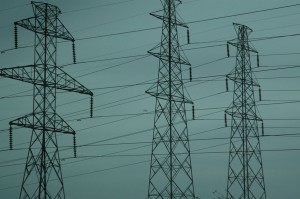Proposition 16: an unlikely polarizer

Tuesday’s special election is sure to play host to many landscape-shifting political battles. For one thing, the Senate Republican Primary will finally be decided, the ever-controversial but equally popular Proposition 14 will meet its fate, and public financing for elections may become an institutionally sanctioned experiment thanks to Proposition 15.
How interesting, then, that the one bill whose economic effects are the most opaque, and whose actual effect on lawmaking is the most specialized, should become a lightning rod for controversy. I refer to Proposition 16, which aims to change the laws governing community energy providers, and their relationship with local governments.
The reason for the controversy surrounding this otherwise fairly technical bill comes from a fierce argument advanced by its critics that it is, in fact, a Trojan horse for domination of the California energy market by the Pacific Gas and Electric Company (PG&E), California’s leading energy provider. Hence, given that the election is still up for grabs, multiple claims, counter-claims and ads have sprouted surrounding the bill as the election draws near.
To the credit of the initiative’s proponents, Proposition 16 has at least been packaged in an engaging way. Titled the “Taxpayers’ Right to Vote Act,” Proposition 16 advances the claim that “local governments in California can spend public money or incur public debt to take over private electric businesses without letting local voters have the final say. That's why California needs Prop. 16. In tough economic times like these, voters deserve the right to have the final say about how our money is spent,” according to its website.
However, critics say this analysis is flawed. In a “fact check” posted by the San Francisco Public Press, author Dana Sherne argues that Proposition 16’s invocation of taxpayer money is misleading:
“There is an important distinction to be made between “taxpayer” and “ratepayer.” Many Community Choice Aggregation programs, like San Francisco’s, would not be run through the municipality’s general fund. Instead, they would be funded by the consumers, who would pay for the electricity as they do with any other provider.”
Sherne is correct insofar as the truth about what the Proposition would do is substantially more prosaic than its supporters suggest. What the bill requires is that local governments call a vote before deciding to start their own local utility providers – a decision which would require 2/3 of the vote to be sustained. If the 2/3 vote is not achieved, then the local government in question would, in effect, be required to maintain its current energy provider – in most cases, this would be PG&E.
There are good arguments both for and against this position. For one thing, it’s quite arguable that requiring any company – even one as powerful as PG&E – to compete against a government entity is fundamentally unfair, given that governments can forcefully expropriate money through taxation. On the other hand, it’s arguable that market logic is out of place in a system whereby PG&E is already given a de facto monopoly thanks to its status as a public utility, and so the fight is really between two different types of monopoly, rather than between the private and the public sector. Either of these claims would have economic weight, and voters are justified in airing on the side of caution with respect to their priorities.
Nevertheless, political battles are not won in the realm of economic logic, and in all likelihood, excesses will be reached regarding this bill in the final days. Voters should expect a high degree of both anti-government and anti-corporate rhetoric, with the former being used more by proponents of the bill and the latter being used more by opponents of the bill.
Either way, Proposition 16 demonstrates that in this contentious election cycle, not even the most opaque and localized ballot measure will survive rigorous political scrutiny.




